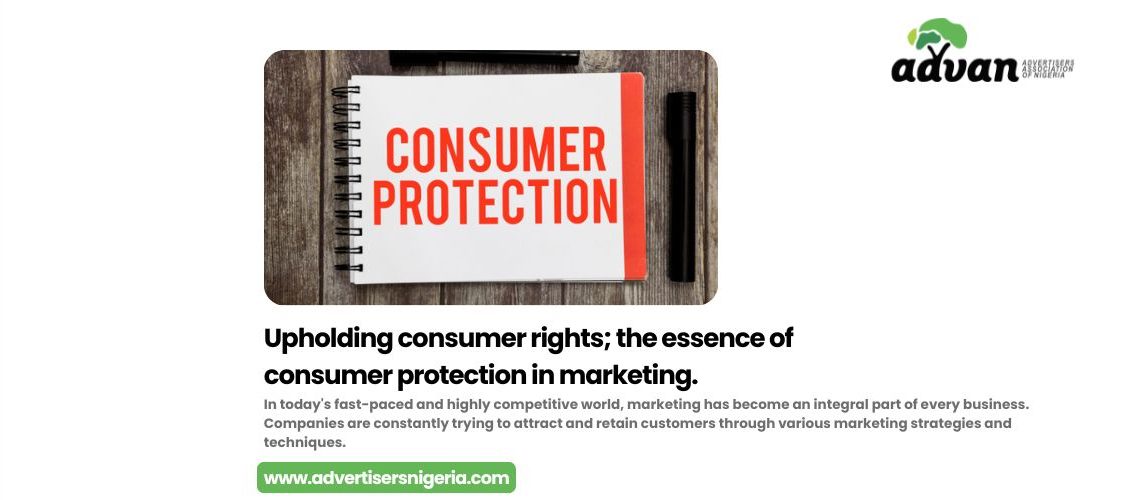Upholding consumer rights; the essence of consumer protection in marketing.
In today’s fast-paced and highly competitive world, marketing has become an integral part of every business. Companies are constantly trying to attract and retain customers through various marketing strategies and techniques. While this is essential for the success of any business, it also puts consumers at risk of being misled or taken advantage of by unscrupulous marketers. This is where consumer protection in marketing comes into play.
Consumer protection refers to ensuring that consumers are safeguarded against unfair practices, misleading information, and harmful products in the marketplace while , Consumer protection in marketing refers to the set of laws, regulations, and policies that are designed to protect consumers from deceptive and unfair marketing practices. It aims to ensure that consumers are treated fairly and have access to accurate information when making purchasing decisions. The role of consumer protection in marketing is crucial as it not only safeguards the interests of consumers but also promotes fair competition in the market.
In the digital age, new challenges arise in consumer protection as online marketing platforms proliferate. Issues such as data privacy, online scams, and influencer marketing ethics pose unique challenges that require updated regulations and enhanced consumer awareness.
One of the primary responsibilities of consumer protection in marketing is to prevent false or misleading advertising. Companies often use deceptive tactics to lure customers into buying their products or services. They may make false claims about the benefits or features of their products, use misleading images or testimonials, or hide important information that could influence a consumer’s purchasing decision. Consumer protection laws prohibit such practices and require companies to provide accurate and truthful information about their products or services.
Another important aspect of consumer protection in marketing is to ensure that companies do not engage in unfair competition. This includes practices such as price fixing, predatory pricing, and false disparagement of competitors’ products. Such practices not only harm consumers by limiting their choices but also create an uneven playing field for businesses. Consumer protection laws aim to promote fair competition and prevent companies from gaining an unfair advantage over their competitors.
In addition to preventing deceptive and unfair practices, consumer protection in marketing also focuses on protecting vulnerable consumers. This includes children, the elderly, and people with disabilities who may not have the ability to make informed decisions. Companies are required to exercise caution when marketing their products or services to these groups and ensure that they are not being taken advantage of.
The role of consumer protection in marketing also extends to e-commerce. With the rise of online shopping, consumers are exposed to a whole new set of risks, such as identity theft, fraud, and data breaches. Consumer protection laws aim to protect consumers in the digital space by requiring companies to have clear and transparent privacy policies, secure payment systems, and provide accurate information about their products or services.
Ethical marketing principles play a pivotal role in consumer protection, emphasizing honesty, transparency, and respect for consumer rights. Companies that adhere to ethical marketing standards build trust with consumers and enhance their brand reputation in the long run.
The responsibility of safeguarding consumers also falls on the shoulders of government agencies and regulatory bodies. These organizations play a crucial role in enforcing consumer protection laws and taking action against companies that engage in deceptive or unfair marketing practices. They also conduct investigations and impose penalties on companies that violate consumer rights, thus serving as a deterrent for future violations.
Apart from government agencies, consumer protection in marketing also relies on consumer advocacy groups and organizations. These groups play a crucial role in raising awareness among consumers about their rights and educating them about the risks of deceptive marketing practices. They also act as watchdogs, monitoring the market and reporting any violations of consumer rights.
Empowering consumers through education and awareness campaigns is key to strengthening consumer protection in marketing. By equipping consumers with knowledge about their rights and how to identify deceptive marketing practices, they can make informed choices and protect themselves from exploitation.
To wrap up, consumer protection in marketing is vital for the well-being of both consumers and businesses. It ensures that consumers are not misled or taken advantage of and promotes fair competition in the market. While government agencies and consumer advocacy groups play a significant role in safeguarding consumers, it is also the responsibility of companies to adhere to consumer protection laws and act ethically in their marketing practices.









